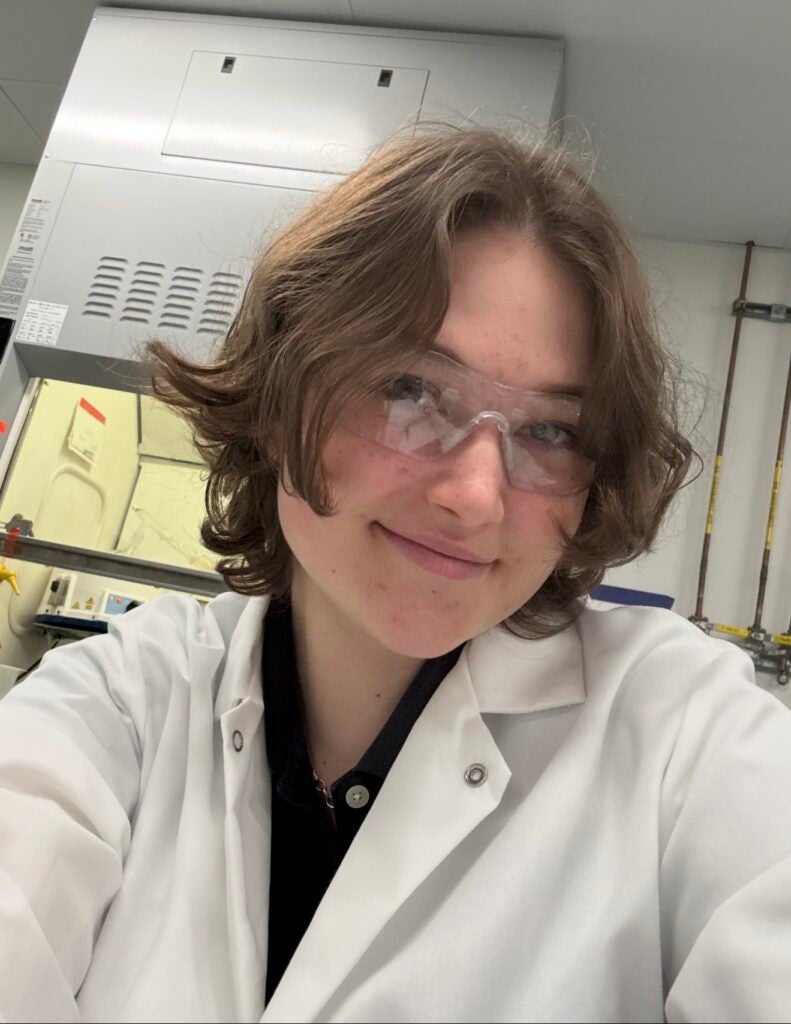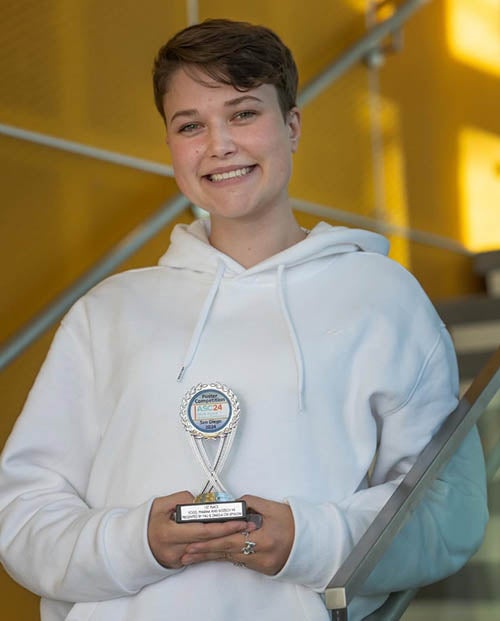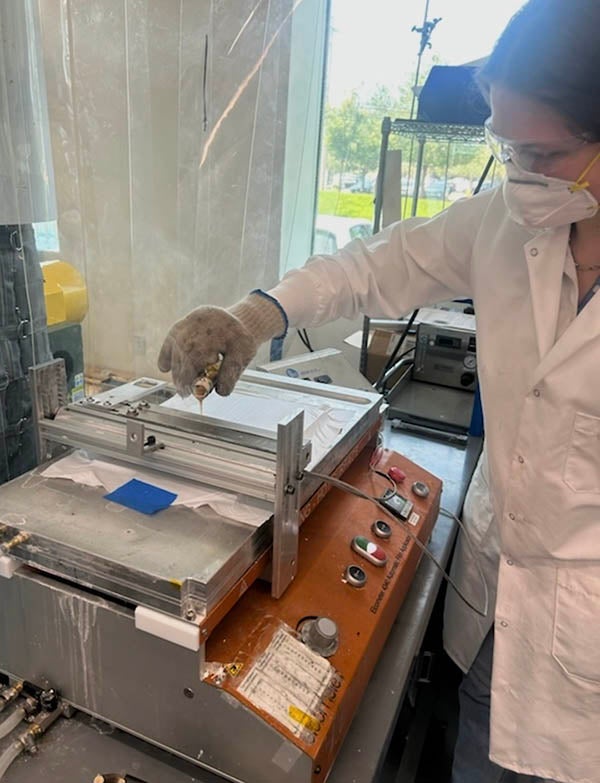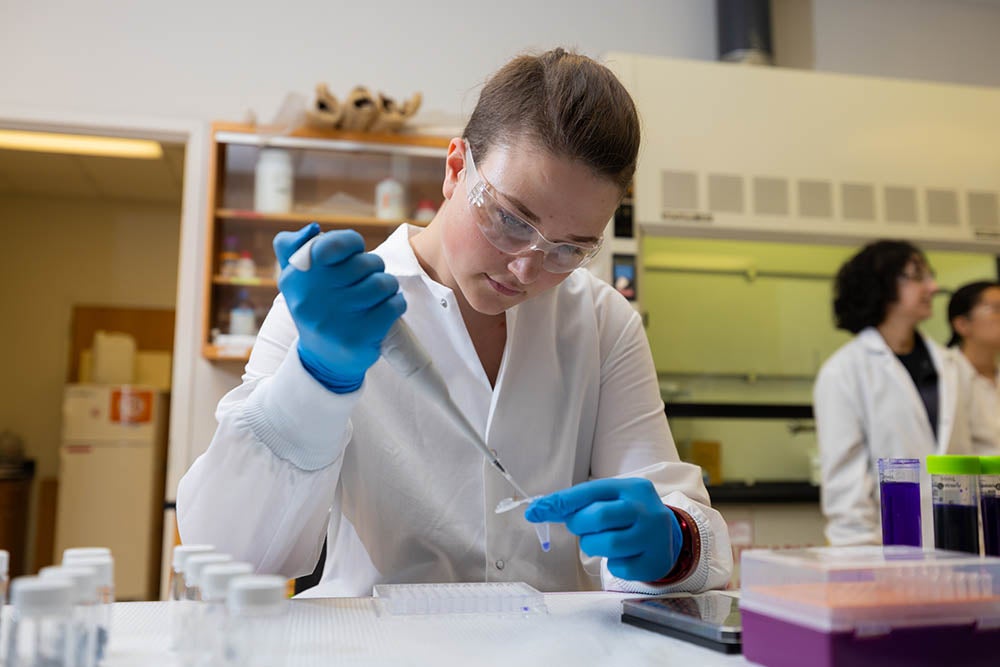Chemical Engineering senior Savanna Sheffield, of Weymouth, MA, has received an American Chemical Society Undergraduate Scholarship. The $5,000 scholarship is designed to support the scientists of tomorrow who will use the transformative power of chemistry to address global challenges. Applicants were evaluated based on their achievements in chemical sciences, their ability to recognize chemistry as a solution to solving global challenges, and their commitment to lifelong learning. The American Chemical Society is a non-profit organization founded in 1876 and chartered by the U.S. Congress. The organization’s mission is to advancing scientific knowledge, empowering a global community, and championing scientific integrity.
We asked Savanna about her new scholarship and current research at University of Rhode Island’s College of Engineering.

Name: Savanna Sheffield
Year/Major: Senior, Chemical Engineering
Minor(s): Materials Engineering, Mathematics
What past successes do you believe led you to this scholarship?
I’ve been fortunate to build a strong foundation in the chemical sciences through research and internship experiences. At URI, I’ve worked on nanocomposite microparticles for lung cancer therapy under the guidance of Professor Samantha Meenach. Through the National Science Foundation Research Experiences for Undergraduates (REU) program at the University of Kentucky, I tested and improved the production of thermogelling hydrogels for mitochondrial transplantation to help treat secondary spinal cord injury.
More recently, I served as a membrane research and development intern at Entegris, a global company that works with manufacturers to enable advancement in technology, where I sought out industry experience that was closely tied to my research through projects in membrane engineering and scale-up. It’s been an honor to have my research recognized throughout my undergraduate studies. I took first place in the Food, Pharmaceutical, and Biotechnology Division at the 2024 American Institute of Chemical Engineers’ national poster competition and first place in my REU poster competition. I was also selected as a recipient for the Future Leaders in Chemical Engineering Symposium, which I will attend in October. In addition, I am expecting my first research paper to be published soon, based on my REU work.

Beyond research, I have stayed deeply involved in my school community. I currently serve as a resident advisor, a student ambassador for the College of Engineering, and president of Tau Beta Pi, the engineering honor society. I also served as a teaching assistant and as a scribe for Theta Tau, a professional engineering fraternity. These roles have helped me strengthen my leadership, communication, and mentorship skills while building supportive communities for other students. Altogether, these experiences have shown me the importance of connecting chemistry to real-world applications while also giving back to the academic community around me.
What will this scholarship help you achieve?
This scholarship will ease the financial pressure of my final year, allowing me to focus more on my research, leadership roles, and classes. It will also give me the freedom to take advantage of opportunities like presenting at conferences and preparing for graduate school without worrying as much about cost.

that improve patient outcomes and tackle global health challenges. (Photo submitted by Savanna Sheffield)
What are your goals for the future as a chemical engineer?
Looking ahead, I plan to pursue a Ph.D. in chemical engineering and focus my research on polymers, biomaterials, and drug delivery systems. My goal is to create new therapeutic platforms that improve patient outcomes and tackle global health challenges. I also want to mentor young engineers and help make STEM fields more accessible to others.

